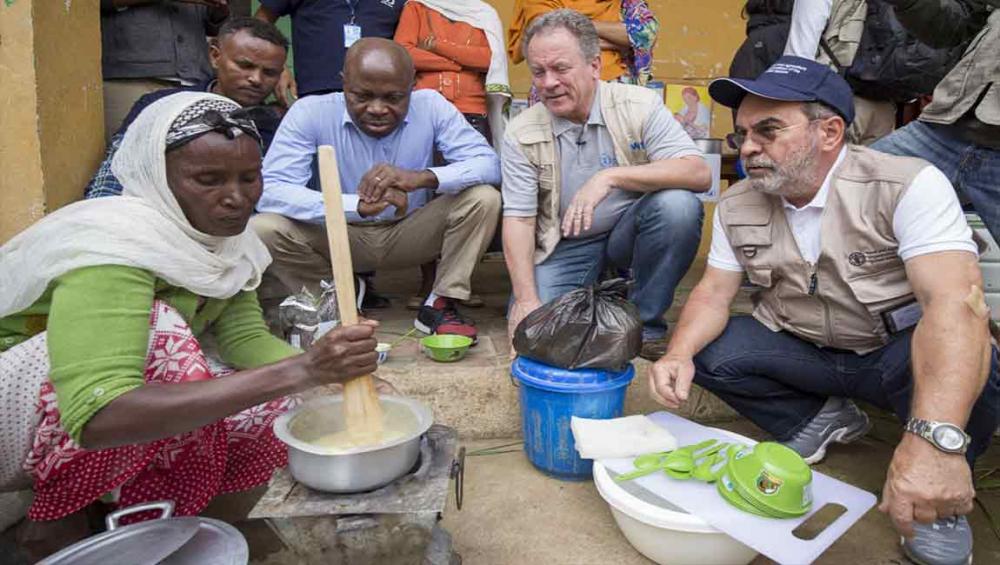Just Earth News | @justearthnews | 06 Sep 2017, 06:37 am Print

FAO/IFAD/WFP/Petterik Wiggers.
The death of many livestock in Ethiopia, as well as in Somalia where 3.3 million people are in need of food after three years with too little rain, has caused a breakdown in pastoral livelihoods, contributing to soaring hunger levels and alarming increases in malnutrition rates, according to the UN Food and Agricultural Organization (FAO).
“A drought does not need to become an emergency,” said Gilbert F. Houngbo, President of the International Fund for Agricultural Development (IFAD), traveling as part of a four-day visit that also included FAO Director-General José Graziano da Silva and David Beasley, Executive Director of the UN World Food Programme (WFP).
“We know what works,” added Houngbo, pointing to irrigation systems, rural financial institutions and other long-term development projects. “This is what we need to build on.”
During the four-day visit, the three senior UN officials toured the Tigray region, where agency heads saw irrigation schemes, fruit nurseries and health centres. According to a press release, these measures are boosting productivity, increasing incomes and improving nutrition so that rural people can better withstand external shocks like droughts.
“We have seen clearly here that working together the three UN food agencies can achieve much more than alone,” said Beasley.
The three agency heads met with high-level officials in Ethiopia and Somalia to discuss aid efforts, as well as with local residents.
“This drought has been going on for a long time and we have lost much of our livestock,” Hajiji Abdi, a community elder told them. “If we didn't get food assistance, we would be in big trouble – but this is still not enough to feed us all.”
- Coding at risk? Anthropic CEO Dario Amodei says human-centric roles may last longer
- Amazon’s mega office in Bengaluru is here. See all details
- Why is Nissan recalling 640000 vehicles? Check all details
- Microsoft appoints Asha Sharma as Gaming CEO. Who is she?
- Is your screen job about to vanish? Top AI expert warns that the shift has already begun





-1763561110.jpg)
